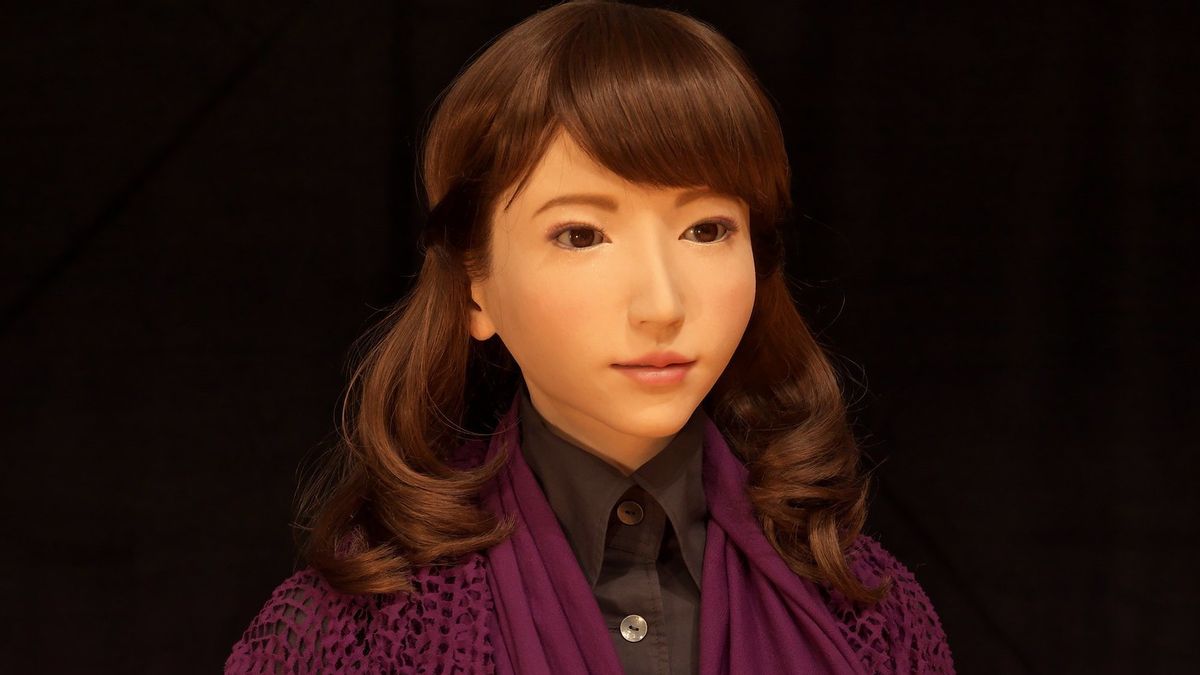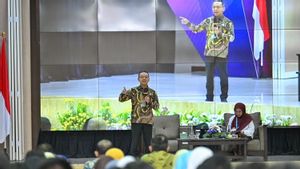JAKARTA - Usually robots are trained to help relieve human work, such as lifting weight and cooking, but now robots are made to entertain with laughter.
Scientists from Unilversiras Kyoto Japan are currently developing an Artificial Intelligence (AI) system so that a robot can laugh and help make conversations with humans more natural.
The robot is calledjuk. He is an Android-based robot that was launched in 2015. Yes, it is not only dubbed the most beautiful Android robot but also smart.
control is considered by some as the most realistic and harmonious-looking robot.
With the AI system,ctions will have three basic questions in a row about whether humans are laughing, whether mediate should laugh in response, and if the answer is "yes" for both, what kind of laughter to choose from is in response.
The response ranged from a small laugh to a happy laugh. Human laughter is very diverse, and there are many other types of laughter thatapons must understand to respond to make it look as natural as possible. This is an extraordinary achievement for an Android.
We think one of the important functions of AI conversations is empathy. So we decided that one way robots can empathize with users is by sharing their laughter," said lead author of the research published in Frontiers in Robotics and AI, Dr. Koji Inoue.
Launching The Guardian, Sunday, September 18, so that short-date laughter can look natural, Inoue and his colleagues also collected training data on more than 80 instant dating dialogues between male and robotic students, which were initially operated by four female amateur actors.
The dialogue data is rotated for solo laughter, social laughter where humor is not involved, such as in polite laughter or shame and laughter of joy.
Then the data is used to train machine learning systems to decide whether to laugh, and choose the appropriate type.
Based on audio files, the algorithm will study the basic characteristics of social laughter, which tends to be calmer and cheerfuler laughter, with the aim of reflecting it in the appropriate situation.
"We have to carefully categorize which laughter we can use for our analysis and not just assume that any laughter can be responded to," said Inoue.
It went into the testing stage, where scientists made four short dialogues to share with someone, integrating the new shared laughing algorithm into existing conversation software.
It will be compared to a scenario whereama tidak ayus sama sekali atau menggeluarkan tahap sosial setiap kali dia mendeteksi tahaki.
Scientists claim laughter can help create robots with their own different characters.
"We think they can show this through their conversational behavior, such as laughing, eye gaze, body movement, and speech style," said Inoue.
The English, Chinese, Japanese, Arabic, and French versions are automatically generated by the AI. So there may still be inaccuracies in translating, please always see Indonesian as our main language. (system supported by DigitalSiber.id)













